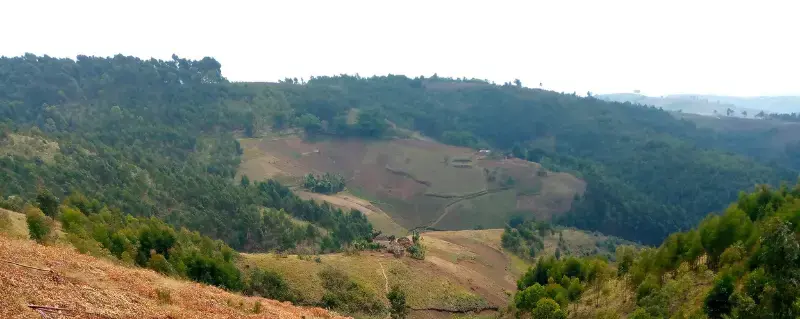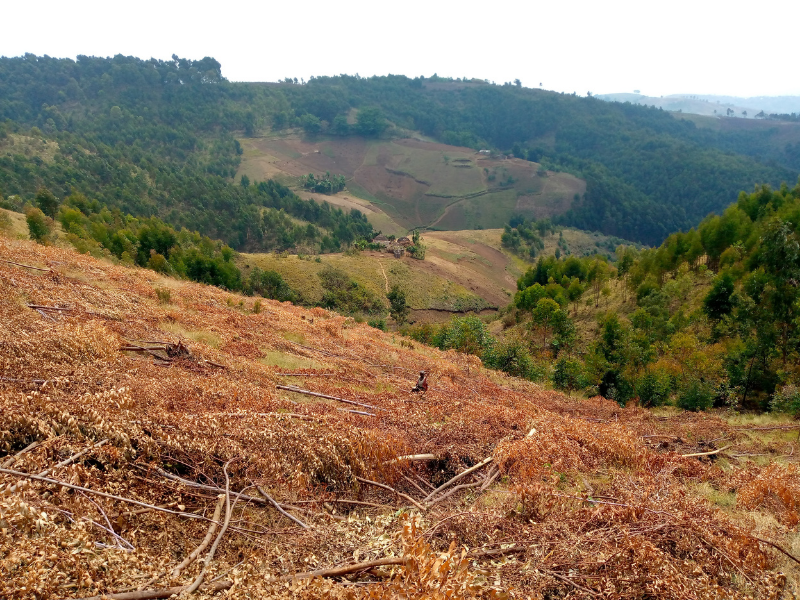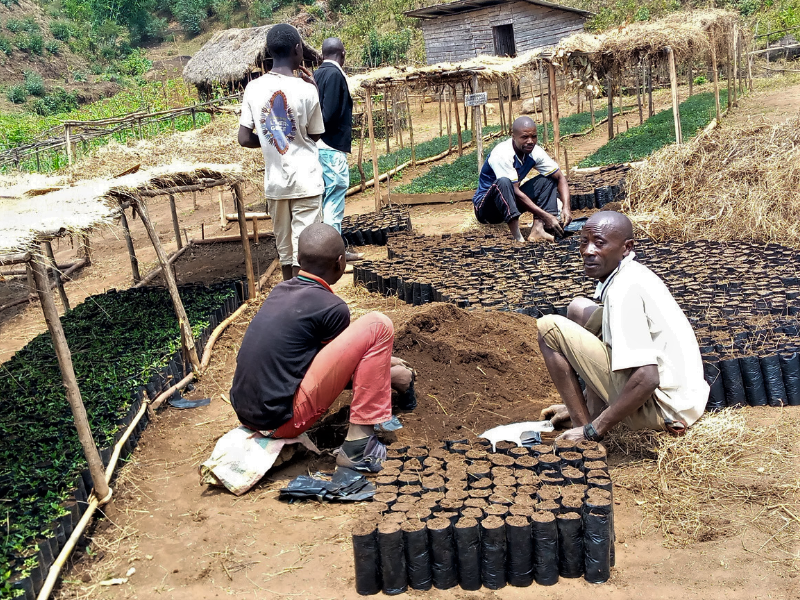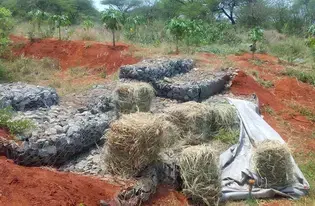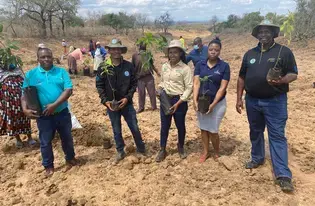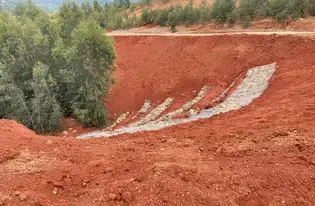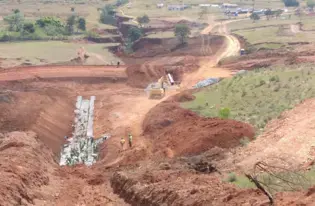The Democratic Republic of the Congo (DRC) is known for its dense tropical forests, which represent 47 percent of Africa's total, as well as its diversity of plants and animals. However, a growing population -- and its dependence on farming and livestock -- are putting pressure on the country’s natural ecosystems. South Kivu province, where 80% of the people live in poverty, has one of the highest population densities in DRC.
The increasing intensity of agriculture is degrading the soil and fueling poverty and food insecurity. To survive, many have no choice but to gather resources from Kahuzi-Biega National Park (KBNP), a UNESCO World Heritage Site.
Restoring farms and forests is a clear priority for the DRC, as it sets out in its extensive national strategies and plans for managing its natural resources. The Food and Agriculture Organization of the UN (FAO) is working from 2018 to 2023 through The Restoration Initiative (TRI) to help local people grow trees on their farms and pasture to reverse the extensive damage.
Led by local communities, the project is helping more than 5,000 households in Kabaré and Ngweshe revitalize 4,800 hectares of the region’s ecosystems to prevent erosion and boost soil fertility while sustainably increasing agricultural productivity. In total, 30,000 people will benefit from the program, as will the 30,000 hectares of the biodiverse Kahuzi‐Biega National Park that will be protected and improved. It will also sequester more than 1 million tons of greenhouse gas emissions by 2038.
South Kivu is just the first province to undergo this restoration transformation. The knowledge gained from this project will help inform other projects in DRC and around the world.
The Global Environment Facility (GEF) is funding this project with a $3.6 million USD grant.
